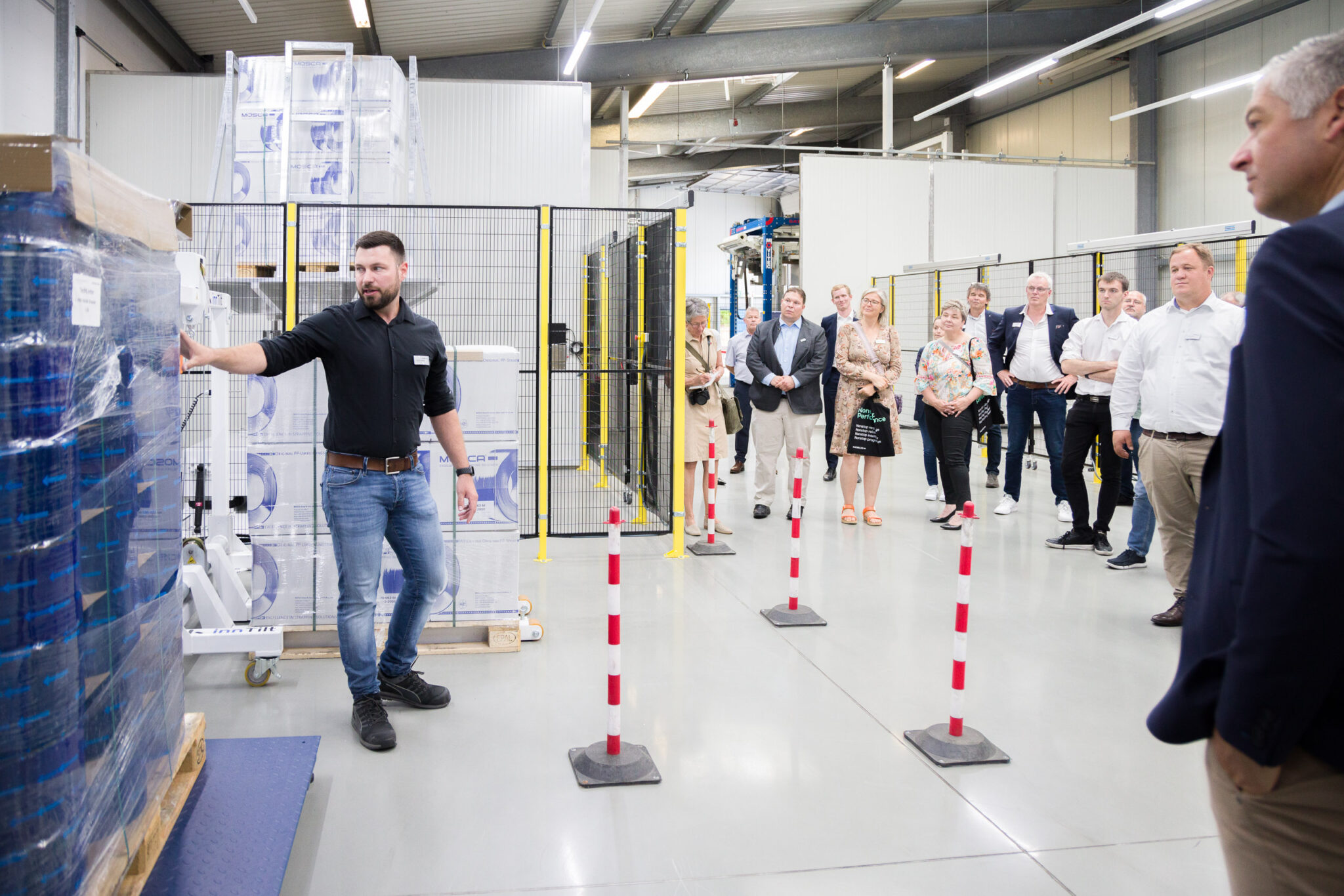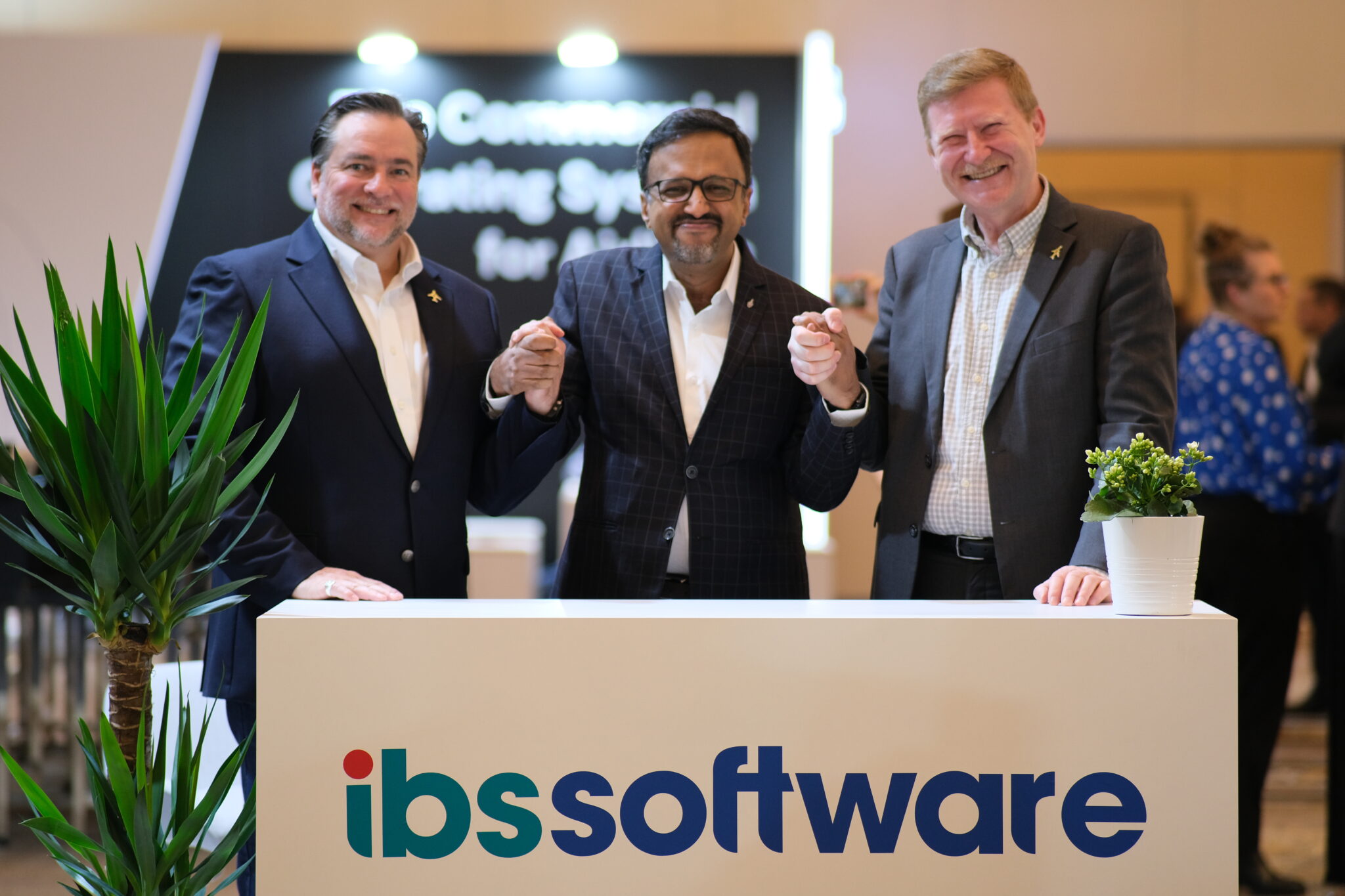Perfectly secured for transport; customers can now have their transport security systems thoroughly tested at Mosca’s new TechCenter. Starting on 28 June, load units can be subjected to sliding, tilting and vibration forces on different test stands. Using the data collected, customers can immediately optimise their load unit security and efficiently minimise material resources. At the same time, they can ensure compliance with legal restrictions in the event of an accident.
On long transport routes, load units and the systems used to hold them in place are subject to a wide variety of stress situations. Load security systems therefore need to be designed to withstand powerful forces from vibrations, impact from potholes or sudden acceleration and deceleration. Mosca opened its new TechCenter on 28 June to help freight companies ensure that their cargo can be safely transported without damage. The Mosca TechCenter uses four test benches to precisely simulate the different forces affecting load units. This enables customers to make sure their load security systems are ready to withstand the stress of transport.
Johannes Wieder, Sales Manager Logistics at Mosca, explains: “Our main objective is to pack and secure load units correctly and robustly in order to minimise damage and injury during transport. Companies need to be aware of their responsibilities when they transport goods. After all, they are liable for any damage caused by improper load unit security. Here at the TechCenter, we carry out testing in accordance with EUMOS 40509 and other key standards.” In the event of an accident, customers can use the detailed test reports from the TechCenter to prove that they have taken all the necessary precautions and thoroughly checked their load security systems.
Four test stations, one calculator and numerous optimisation options
The Mosca TechCenter uses several high-tech systems designed to simulate various load conditions. These include a tilt testing tool, a horizontal stability tester to measure acceleration and deceleration, an impact tester for measuring shock or crushing forces and a vertical vibration system. There is also a camera-supported evaluation unit that records and analyses deformations during stability testing. A data logger is used to record and compile the required data on shocks, vibrations and sudden acceleration during transport. This unit can also be loaned to customers to simulate load units on their specific transport routes. “The customised tests and extensive data collected enable our customers to analyse their transport routes in detail and precisely adapt their transport security systems accordingly,” Wieder explains.
An in-depth analysis of the material input is also conducted. “This often shows options to significantly reduce the primary packaging and save valuable resources,” Wieder says. “It also enables us to design packaging that minimises material input but still protects the goods from damage.” The CO2 product calculator developed by Mosca is used to provide the exact emission data for the specific packaging.
Uncomplicated process provides essential data
It’s easy for customers to arrange an appointment at the Mosca TechCenter. They can simply use the contact form on the company website and outline specific challenges that need to be taken into account during testing. Mosca experts then work with the customer’s technicians to create a test plan that is optimally tailored to the needs of the product as well as the transport route. They also take into account the relevant standards. Different legal requirements must be met depending on the country to which the shipment is being transported and specific tests may be required.
Once the test plan is finalised, customers can send multiple pallets with secured products and a maximum weight of 1.5 tonnes to Mosca. This way, if a pallet is insufficiently secured for transport and gets damaged during testing, there is enough material to complete the remaining tests. Mosca can optionally strap or stretch wrap the products using its own machines in an adjacent showroom. This enables a direct comparison between different types of packaging.
Action-packed opening event with company tour and live demonstrations
Mosca hosted the first group of interested visitors on 28 June. The grand opening of the Mosca TechCenter took place with live demonstrations of the testing routines, group discussions and a dynamic exchange of information. Mosca CEO, Timo Mosca: “Our TechCenter enables us to offer customers professional support when it comes to securing and efficiently packing their unit loads. At the same time, it helps us improve transport safety.”





